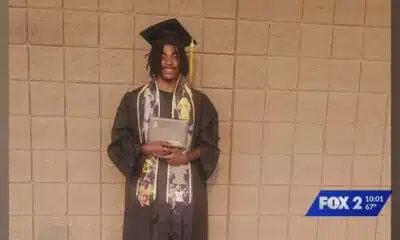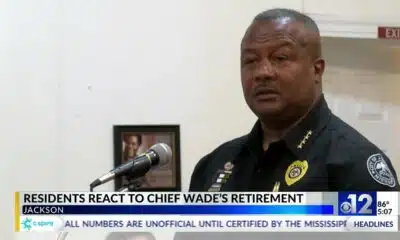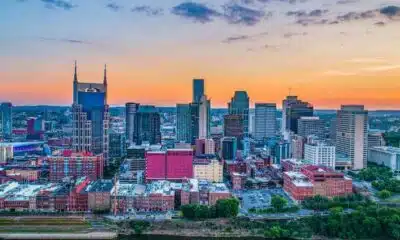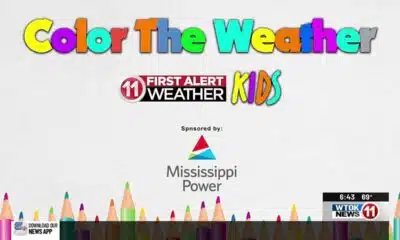News from the South - Texas News Feed
Texas severe storms leave behind damage in Hays County | FOX 7 Austin
SUMMARY: Severe storms struck Hays County Thursday night, causing significant damage, especially at San Marcos Regional Airport where planes were flipped due to sudden wind shear or microbursts. John Sriier, a pilot and airport advisor, explained that light aluminum planes can be lifted by quick gusts exceeding 55-60 mph if not secured. In the Kyle area, golf ball-sized hail appeared suddenly under clear skies, causing chaos with damaged roofs, windshields, and solar panels. Residents described the storm as intense and unprecedented. Experts recommend homeowners inspect roofs post-storm and work with roofing professionals to document damage and assist with insurance claims.
After severe weather on Thursday night, Hays County got all sorts of damage in both neighborhoods and at the airport.
FOX 7 Austin brings you breaking news, weather, and local stories out of Central #Texas as well as fun segments from Good Day Austin, the best from our video vault archives, and exclusive shows like the Good Day Austin Round-Up and CrimeWatch.
News from the South - Texas News Feed
It's a love story: Taylor Swift, Travis Kelce announce engagement
SUMMARY: Taylor Swift and Kansas City Chiefs tight end Travis Kelce are engaged, announcing it on Instagram with a photo of Kelce proposing in a garden and showcasing Swift’s dazzling “Old Mine brilliant cut” ring. The couple, both 35, began dating in 2023 after Kelce attended Swift’s Eras Tour. Despite early challenges, including Kelce’s unsuccessful attempt to give Swift a friendship bracelet with his number, their relationship blossomed. Swift has supported Kelce at numerous games, including two Super Bowls, while Kelce frequently attends her concerts. Their relationship has garnered massive media attention and was featured in ESPN’s documentary “The Kingdom.” Kelce’s parents praise their bond as genuine and deserving.
The post It's a love story: Taylor Swift, Travis Kelce announce engagement appeared first on www.kxan.com
News from the South - Texas News Feed
We're excited for National Dog Day!
SUMMARY: To celebrate National Dog Day, the studio welcomed three dogs: Mac, Sandy, and Leo. Sandy sports a playful lipstick kiss from Kim Castro, while lively one-year-old Leo kept everyone entertained. The dogs’ owners, also producers, shared that it’s usually breakfast, walk, or nap time for them. The studio enjoyed the furry therapy vibe and encouraged viewers to treat their dogs with special offers from PetSmart (buy one, get one 25% off on treats), Lazy Dog Restaurant and Bar (coupon with dog bowl and entree), and free Puppuccinos from Starbucks. Viewer-submitted dog photos added to the joyful celebration of our furry friends.
We had in-studio guests to help us celebrate.
News from the South - Texas News Feed
Racism Wrapped in Rural Warmth
Rural Texas wears a friendly facade. You know everyone, and everyone treats each other so kindly, but, if you’re Black, you just ignore the stares when you walk into the local steakhouse for fish fry night.
I was 7 or 8 when I realized I would always be treated differently than my white friends. It was picture day and I was waiting in line near our classroom and watching as my teacher fixed every girl’s hair. I eagerly waited for her to fix mine, but she never did. I assumed it was because my hair was already twisted into three cute ponytails, a classic hairstyle for little Black girls.
But when I got home and asked my mom, she told me my teacher didn’t know what to do since my hair had a different texture than my friends’.
When I was in the seventh grade, I was called the n-word. I didn’t need to ask my mom what the word meant; I already knew. You’re taught at a young age if you’re Black. You’re taught never to say that word. It’s a slur. It’s a dirty word. The kid who called me that slur was a bully and I was a straight-A/B student. I never did anything wrong. (I can’t even tell you what detention was like!) My mom expected the best, so I became the best I could be. I remember telling her and crying. I was hurt.
A day later, he apologized after my mom told the school. I was surprised the school took action even in the early 2000s. I don’t recall being called that slur again. This was part of the good side of growing up in a place I’ll call “Smallstown” (since I still live here), a southeast Texas town where about one in five residents is Black. Many people try to do the right thing.
But throughout my academic and personal life, I experienced subtler forms of small-town racism—warm and welcoming with flashes of ugliness.
In 2005, my brother, mom, and I went to a local clothing store to buy a suit for his high school prom. As soon as we opened the door, we were immediately greeted. You would think that would be amazing customer service, but it wasn’t friendly. Family friends, who are also Black, told us they’d gotten the same greeting—it was pure racism.
Being stopped at the door was embarrassing. My family doesn’t steal. If I can’t afford it then I don’t need it. No one in my family has shopped there since. But to this day, I still get followed at a local big box store, especially when I’m eyeing the latest gaming systems.
My mom raised me to be intelligent and to think creatively. I grew up around books and learned about the world around me. I was raised on academics and hoped my smarts and studies would take me far.
Sometimes I was made fun of for talking “white.” (To this day, I have no idea what that meant.) I didn’t speak like the other Black kids did so I suppose that gave others something to laugh about—a kind of reverse racism.
In high school, I discovered a love for rock music. I was the only Black girl at Smallstown High who listened to rock. I loved Slipknot and other popular bands. I still do. I remember a particularly odd moment in history class my senior year. Our teacher was a coach and, for him, the stereotype was true: Coaches that teach often don’t care about the subject. One day my musical preferences came up in class and the teacher said, “You’re a Black girl who likes rock music? I would have dated you in high school.” Everyone thought that was weird.
In 2007, I escaped Smallstown to attend Sam Houston State University (SHSU) in Huntsville, where fortunately, I had fewer experiences with racism. But I recall that when Barack Obama was reelected I and other Black students got a text warning us to stay indoors. Otherwise, nothing stood out. I felt my race didn’t matter in Huntsville. The “townies” (we loved calling Huntsville people that as if they were the visitors and we weren’t) treated me differently only because I was a college student—a younger, less-rooted resident. On campus, we treated each other like longtime friends. I joined the Black Student Alliance, the NAACP, and the Program Council. I befriended many people who didn’t treat me differently because of my race.
For years, I wondered why, and I think it’s because so many SHSU students grew up in bigger cities. When I mentioned how insular Smallstown was, they seemed confused. By the time I graduated, I had learned a lot about myself. The lessons I learned and the people I met stay with me.
But then I moved back to Smallstown. Some strangers stopped me to ask if I was aware of what shirt I was wearing. (Yes, it featured my favorite heavy metal band.) And others still spoke to me as if I were a child. I was shocked to realize that my experiences as a Black woman in rural Texas wouldn’t change just because I had gained a bachelor’s degree.
I started working at a grocery store after college. The managers there never treated me differently due to my race—they treated me well because I was a hard worker. But some customers dealt with me differently because I was Black. The store had a small gas station, and I worked inside a little kiosk surrounded by fuel pumps. Every now and then, some white customers treated me as if I knew much less than the white co-workers I’d trained.
Compared to Huntsville, Smallstown has a big socioeconomic divide. Generations of white families in our town were able to buy homes and grow businesses while Black families were redlined and segregated and forced to attempt to break generational curses. But rich White people generally were less racist while poorer ones tended to belittle Black people. I found the nicest visitors to the grocery store were often ranchers and farmhands who drove in from the country.
I often wonder what would spark a change in the attitudes people have about Black people in small-town Texas. I hope that people like me, and the younger generations, will be able to inspire a much-needed change. Change comes from within and through open discussions. Frankly, I would have expected that racism would have faded already by 2025, but it hasn’t. People seem stuck in denial and defense mode whenever a Black person speaks about racism. You hear: “Oh, I can’t be racist because I have a Black friend,” or, my personal favorite, “There’s not a racist bone in my body.”
For real change to happen, people need to be ready to recognize things within themselves. I am hoping to open some eyes by sharing some of my experiences about being a Black woman in rural Texas.
The post Racism Wrapped in Rural Warmth appeared first on www.texasobserver.org
Note: The following A.I. based commentary is not part of the original article, reproduced above, but is offered in the hopes that it will promote greater media literacy and critical thinking, by making any potential bias more visible to the reader –Staff Editor.
Political Bias Rating: Center-Left
This content focuses on the personal experience of a Black woman facing racial discrimination in rural Texas, highlighting systemic and interpersonal racism. The narrative advocates for recognition of racial issues and social change, which aligns with values typically associated with center-left perspectives emphasizing social justice and equity. While it critiques aspects of society and calls for progress, it does so through personal storytelling rather than overt political rhetoric, avoiding extreme or highly partisan language.
-
News from the South - Kentucky News Feed7 days ago
First of its kind clinical trial offers new hope for Kentuckians at risk of dementia
-
News from the South - Alabama News Feed6 days ago
Grants to boost local emergency alert systems in question as public media agency closes
-
Our Mississippi Home7 days ago
MSU Unveils Mixed-Use Development Featuring Boutique Hotel, Cultural Landmark
-
News from the South - Arkansas News Feed7 days ago
‘Alligator Alcatraz’ probed by Dems as ICE detention centers multiply in states
-
News from the South - Arkansas News Feed5 days ago
New I-55 bridge between Arkansas, Tennessee named after region’s three ‘Kings’
-
News from the South - Texas News Feed3 days ago
DEA agents uncover 'torture chamber,' buried drugs and bones at Kentucky home
-
Local News7 days ago
Winged ferry that glides like a pelican tested for coastal transportation
-
News from the South - West Virginia News Feed7 days ago
WV groups call on Morrisey, McCuskey to push against end of federal solar program












































